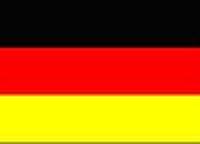Foreign ministers to meet in Berlin on Iran
Diplomats from the United States , Russia , China and Europe focused Thursday on how much and what kind of pressure to bring on Iran to get it to compromise on its suspect nuclear activities.

The meeting follows agreement Wednesday by the 15-member Security Council to ask the U.N. nuclear watchdog, the International Atomic Energy Agency, to report back in 30 days on Iran 's compliance with demands to stop enriching uranium.
The council statement, made available to The Associated Press, takes into account Russian and Chinese reservations about too much toughness, while meeting U.S. , French and British calls for keeping the pressure on Tehran .
It "notes with serious concern Iran 's decision to resume enrichment-related activities .... and to suspend cooperation with the IAEA under the additional protocol" _ an agreement allowing agency inspectors wide access on short notice to Iran 's nuclear program.
It calls on Iran to return to "full and sustained suspension of all enrichment-related ... activities."
U.S. Secretary of State Condoleezza Rice called the statement an "important diplomatic step" that showed the international community's concern about Iran . Before meeting with her counterparts, she was consulting with German Chancellor Angela Merkel.
"We are very close today to taking the first major step in the Security Council to deal with Iran's nearly 20-year-old clandestine nuclear weapons program," John Bolton, U.S. ambassador to the United Nations, said in New York. "It sends an unmistakable message to Iran that its efforts to deny the obvious fact of what it's doing are not going to be sufficient."
Iran remained defiant, maintaining its right to nuclear power but insisting Wednesday night that it had no intention of seeking weapons of mass destruction.
Iran 's Foreign Minister Manouchehr Mottaki on Thursday condemned "unjustified propaganda" about its nuclear program.
" Iran 's nuclear program is peaceful and has never diverted towards prohibited activities," Mottaki told the 65-nation Conference on Disarmament in Geneva .
Still, Rice and ministers from France , Britain , Russia , China and Germany were not likely to accomplish much at a meeting formally set to last only 90 minutes beyond giving formal blessings for the council statement and using it to reflect a show of unity.
While the officials, along with EU foreign policy chief Javier Solana, are expected to touch on ways to engage Iran diplomatically, major differences persist on that approach.
In a confidential letter drafted by Britain earlier this month, the British argued for talks directly or indirectly involving the six nations. In exchange, they hoped to secure Russian and Chinese backing for increasing pressure on Tehran through binding Security Council resolutions that could be enforced militarily including sanctions.
When asked if multilateral talks with Iran could still be considered at Thursday's talks, a senior European official said: "the proposal is not off the table."
Still, a U.S. official, who also spoke on condition of anonymity, said Washington was opposed to any talks going beyond contacts between Iran and Britain , France and Germany the three countries that broke off talks with Tehran last year after it started activities linked to enrichment.
"From the beginning, our position has been that we don't think it's helpful to have other countries joining the EU-3 in the dialogue, because it has the potential of diluting the Western position on Iran ," he told The Associated Press.
The U.S. position appeared at odds with Moscow 's stance. Before the Berlin meeting, Russian Foreign Minister Sergei Lavrov said his country continued to insist on "exclusively political and diplomatic methods," the RIA-Novosti news agency reported.
Negotiations between Iran and France , Germany and Britain collapsed in August after Tehran rejected a package of incentives offered in return for a permanent end to uranium enrichment. Its moves to develop full-blown enrichment capabilities led the IAEA's board to ask for Security Council involvement.
The U.S. official did not rule out direct discussions with Iran , however, suggesting they could be a spinoff of the U.S. administration's decision this month to talk to Iranian officials about Iraq after a nearly three-decade break in diplomatic ties.
The U.S. administration has publicly emphasized those talks would not touch on the nuclear issue. But the official said that "if some understanding emerges from those discussions, then the one side or the other might say, 'let's have some follow-up."'
Russia and China are wary of giving the Security Council too much say on Iran and its nuclear program, arguing too much pressure too soon on that level could get out of hand and push Iran to take radical countermeasures, including leaving the Nuclear Nonproliferation Treaty, reports the AP.
D.M.
Subscribe to Pravda.Ru Telegram channel, Facebook, RSS!





